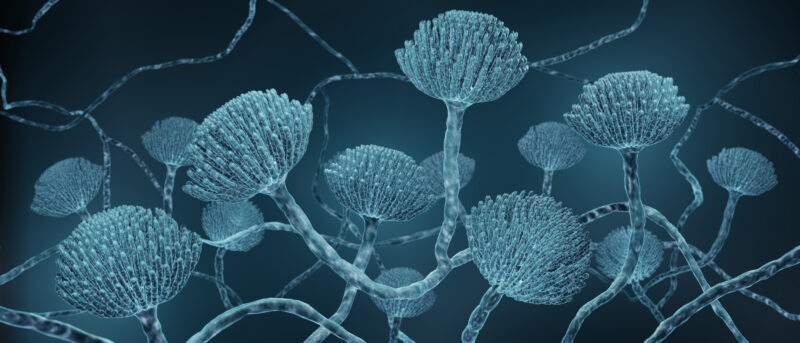Reactive oxygen species (ROS) are chemical compounds that naturally occur during cellular metabolism and serve various biological functions in the cell. Under normal conditions, these compounds play roles in transmitting cellular signals, generating immune responses, and producing cellular energy. However, if ROS are produced excessively and not effectively removed from the environment, oxidative stress may occur. Many studies in the literature have demonstrated the importance of oxidative stress in the onset of cancer. However, new studies suggest that oxidative stress may paradoxically prevent metastasis, which is defined as the migration of cancer from the organ of origin to another region, by exerting an inhibitory effect on the spread of cancer to other regions.
We can understand the effects of oxidative stress on cells and why it can promote the onset of cancer by observing its impact. Oxidative stress, caused by ROS that are not effectively removed from the environment, can lead to damage to proteins, lipids, and DNA in cells. This damage can result in the degradation of genetic material and even cell death, preventing cells from performing their normal functions. DNA damage caused by ROS can lead to uncontrolled cell division and/or introduction to the immune system, aiding damaged cells (unregulated cells) in escaping immune surveillance. Therefore, it is crucial to control oxidative stress in the body. The causes of oxidative stress can be summarized under a few main headings:
Inflammation: Chronic inflammatory conditions can elevate oxidative stress in cells.
High sugar levels: Elevated blood sugar levels can contribute to increased oxidative stress.
Heavy metals: Metals like lead, mercury, and arsenic can escalate free radical production.
Medicines and radiation: Certain medications and radiation therapies can also heighten oxidative stress.
Overproduction of free radicals: Normal metabolic processes, smoking, alcohol consumption, environmental pollutants and external factors such as ultraviolet (UV) rays can cause overproduction of free radicals.
Antioxidant deficiency: Antioxidants neutralize free radicals and protect cells. A deficiency in antioxidants can weaken the body’s defense against free radicals.
Friend or foe?
In this article, I would like to focus on the delicate balance of antioxidant levels in the body and discuss studies that have surprised the scientific community. While we have discussed the importance of oxidative stress in cancer development, it is intriguing to consider that cancer, being a highly adaptive system, may exploit or even benefit from this stress.
For years, using antioxidants to reduce oxidative stress has been considered a preventive and therapeutic strategy against cancer. Based on this, large-scale clinical trials have been conducted to investigate the effects of antioxidant supplementation. However, these trials yielded unexpected results. Not only did antioxidant supplements fail to benefit patients, but they were also associated with a significant increase in cancer incidence. These findings pose a challenging question: if antioxidants are believed to eliminate molecules that promote tumor initiation and progression, how can they also promote tumor growth? This paradox highlights the complexity of cancer biology and the need for further research to understand the intricate interplay between antioxidants, oxidative stress, and cancer development.
Answers are slowly coming to light
The accumulation of reactive oxygen species (ROS) in cells during the initial formation of tumorous tissue can lead to growth arrest or cell death, suppressing tumor progression. Abnormal proliferation causes cells to move away from their natural “niche,” which provides essential growth factors. The displaced cells are thus starved, leading to inefficient oxygen metabolism and lethal levels of ROS. Cellular factors involved in tumor initiation and progression increase antioxidant production to combat oxidative stress. Reducing the production of antioxidants may prevent the onset of a malignant tumor with metastatic capability. Current findings suggest that antioxidant supplementation can support tumor growth by rescuing the viability of stressed tumor cells.
So are antioxidants friend or foe for cancer?
It would not be accurate to provide a general answer to this question. From the moment the first cancer cell forms in a specific tissue, it undergoes many different stages. The primary goal of the cancer cell is to proliferate unchecked. As it becomes more selfish, the tissue or organ it occupies becomes insufficient, prompting it to migrate to other sites to continue proliferating. This phase is crucial. Oxidative stress plays a significant role in creating a favorable environment for cancer initiation. Excessive oxidative stress can even induce cell death in cancerous cells if they fail to adapt. Studies have shown that tumor cells that undergo metabolic changes to better withstand oxidative stress are more likely to metastasize. These changes include activating metabolic pathways that produce antioxidants.
The overall conclusion is that a tumor cell is a highly dynamic structure that undergoes numerous changes over time to survive and proliferate. Even antioxidants, which might initially prevent tumor formation, can create a favorable environment for tumor growth and metastasis at a certain stage. Therefore, treatment protocols vary for each stage, and the use of nutritional supplements before and after tumor development may differ as well. It is crucial that cancer patients do not plan their regimen or use of supplements without consulting their doctor. There are studies indicating that even seemingly safe supplements like zinc can increase cancer metastasis at high doses. Glutathione, another popular antioxidant, is also not exempt from this risk. Some cancer patients may self-prescribe these supplements to protect themselves from chemotherapy’s toxic effects, but this should never be done without a doctor’s evaluation.
The evolving understanding of antioxidants and their roles in different stages of cancer initiation, progression, and metastasis, as well as in various tumor types, may pave the way for the development of targeted therapies. By targeting specific antioxidants relevant to each tumor type and stage, we may be able to develop more effective treatments. In light of this, it is important to reconsider our perspective on the role of reactive oxygen species (ROS) and oxidative stress in cancer. Perhaps ROS, often viewed as harmful, could be harnessed as an unexpected ally in our efforts to cure this deadly disease.
References
- Piskounova E, Agathocleous M, Murphy MM, Hu Z, Huddlestun SE, Zhao Z, Leitch AM, Johnson TM, DeBerardinis RJ, Morrison SJ. Oxidative stress inhibits distant metastasis by human melanoma cells. Nature. 2015 Nov 12;527(7577):186-91. doi: 10.1038/nature15726. Epub 2015 Oct 14. PMID: 26466563; PMCID: PMC4644103.
- Klein EA, Thompson IM, Tangen CM, et al. Vitamin E and the Risk of Prostate Cancer: The Selenium and Vitamin E Cancer Prevention Trial (SELECT). JAMA. 2011;306(14):1549–1556. doi:10.1001/jama.2011.1437
- Chandel NS, Tuveson DA. The promise and perils of antioxidants for cancer patients. N Engl J Med. 2014 Jul 10;371(2):177-8. doi: 10.1056/NEJMcibr1405701. PMID: 25006725.
- Liu CY, Liu CC, Li AF, Hsu TW, Lin JH, Hung SC, Hsu HS. Glutathione peroxidase 4 expression predicts poor overall survival in patients with resected lung adenocarcinoma. Sci Rep. 2022 Nov 28;12(1):20462. doi: 10.1038/s41598-022-25019-2. PMID: 36443446; PMCID: PMC9705709.
- Marini HR, Facchini BA, di Francia R, Freni J, Puzzolo D, Montella L, Facchini G, Ottaiano A, Berretta M, Minutoli L. Glutathione: Lights and Shadows in Cancer Patients. Biomedicines. 2023 Aug 8;11(8):2226. doi: 10.3390/biomedicines11082226. PMID: 37626722; PMCID: PMC10452337.
- Zhang Y, Song M, Mucci LA, Giovannucci EL. Zinc supplement use and risk of aggressive prostate cancer: a 30-year follow-up study. Eur J Epidemiol. 2022 Dec;37(12):1251-1260. doi: 10.1007/s10654-022-00922-0. Epub 2022 Nov 3. PMID: 36326979; PMCID: PMC9630799.





